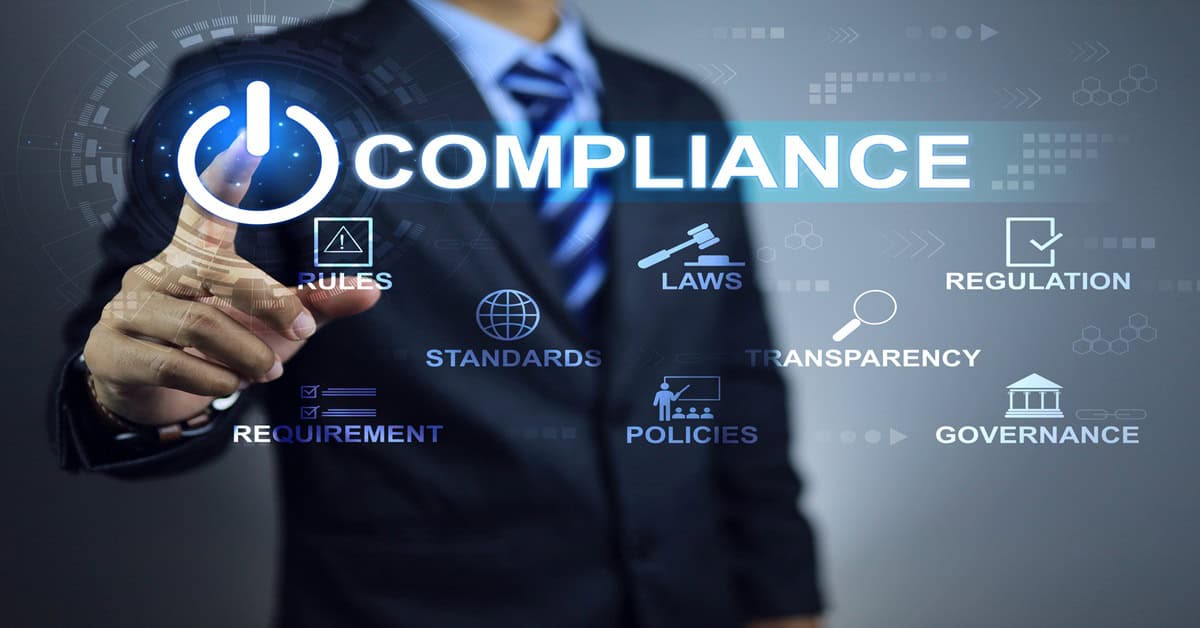Legal Requirements for Senior Entrepreneurs: What You Need to Know

Introduction
What you need to know about legal requirements for senior entrepreneurs. So, you’re a senior thinking of joining the entrepreneurial world? You’re part of a growing movement that’s changing the face of business. Many retirees are engaging in business ventures as a way to redefine success and remain active in their communities. Understanding the legal requirements for senior entrepreneurs is crucial as you embark on this journey.
This is often referred to as “senior preneurship” and more and more people are using their years of experience and wisdom to start new businesses in their golden years. But with this opportunity comes a whole lot of legal stuff you need to know and navigate.
Senior entrepreneurship
Retirement used to mean leisure and relaxation. Now it means business and bustle for older entrepreneurs. And for good reason. The experience, industry knowledge and professional networks that older people bring to the table are worth a fortune in the business world. As more retirees start businesses, it’s important to be aware of the legal requirements for senior entrepreneurs in various industries.
This isn’t just anecdotal – the stats back it up. According to the Kauffman Index of Startup Activity, the percentage of new entrepreneurs aged 55-64 has been growing for the past two decades. In fact, this age group now accounts for almost a quarter of new entrepreneurs in the US. This growth highlights the increasing need for clear information on the legal requirements for senior entrepreneurs.
There are many reasons for this senior entrepreneurship surge. Some are driven by financial necessity looking to top up their retirement income. Others are motivated by the desire to stay active and engaged and pursue passions they may not have had time for during their traditional careers. And others see it as an opportunity to leave a lasting legacy or give back to their community.
Whatever the reason, senior entrepreneurs are proving that innovation and drive aren’t just for the young. They’re starting businesses in all sorts of industries from consulting firms that leverage their years of professional experience to tech startups that challenge the notion that digital innovation is a young person’s game. As the number of senior-led businesses grows, so does the need for clarity on the legal aspects affecting older entrepreneurs.
Why you need to know the legal stuff for your senior business
While your years of experience are a valuable asset in your entrepreneurial journey, navigating the legal landscape of business ownership is new territory. Understanding and complying with the legal requirements for senior entrepreneurs is not just about avoiding fines or legal trouble – it’s about setting up your business for long-term success and protecting what you’ve worked for.
Consider this: according to the U.S. Small Business Administration, about 20% of small businesses fail in the first year. While there are many reasons for business failure, legal issues can certainly be a big one. Whether it’s choosing the wrong business structure and ending up with unexpected tax liabilities, or overlooking crucial licenses and permits and facing big fines, legal mistakes can kill even the best business ideas. This is why it’s crucial to familiarize yourself with the legal requirements for senior entrepreneurs.
Insurance Requirements for Gray Businesses
Risk management is crucial in sustainable business practices, emphasizing the importance of contingency planning and insurance. Identifying potential risks, such as economic downturns and supply chain disruptions, and creating strategies to diversify revenue streams and secure adequate insurance coverage can protect against unforeseen events.
And as a senior entrepreneur, you have personal assets you’ve accumulated over a lifetime of work. Without proper legal protection, these assets could be at risk if your business is hit with legal or financial problems.
Knowing the legal considerations for mature entrepreneurs also helps you make informed decisions about your business. For example, knowing employment law can help you decide whether to hire employees or work with independent contractors. Understanding intellectual property law can help you protect your ideas and potentially create new revenue streams through licensing.
In short, legal knowledge is a tool – one that helps you mitigate risks, maximize opportunities, and navigate the business ownership maze with confidence. It’s not about becoming a legal expert yourself, but about knowing enough to ask the right questions, get the right advice when you need it, and make informed decisions for your business.
As we get into the nitty-gritty of the legal framework for senior startups, remember this knowledge is empowering. It lets you focus on what you do best – running and growing your business – with the peace of mind that comes from knowing you’re on solid ground. Navigating the regulatory environment for mature business owners can be complex, but it’s essential for long-term success.
Business Structure

One of the first and most important legal decisions you’ll make as a senior entrepreneur is choosing the right business model and structure. This decision will have big implications – from tax obligations to paperwork requirements to personal liability to raising capital. Understanding the legal requirements for senior entrepreneurs in relation to business structures is essential for making an informed choice.
Sole proprietorship
A sole proprietorship is the simplest and most common business model for individual business owners. It’s easy to set up and you have total control of your business.
Pros:
Easy and cheap to set up and maintain
Total control of decision making
Minimal legal requirements and paperwork
All profits go directly to you as the owner
Allows you to work at your own pace
Cons:
Unlimited personal liability for business debts and obligations
Harder to raise money
You’re responsible for all taxes and may end up in a higher tax bracket
As a senior entrepreneur a sole proprietorship might be okay if you’re starting a small low risk business and want to dip your toe in the entrepreneurial waters without much formalities. But the lack of personal liability protection is a big drawback to consider.
Partnership
If you’re going into business with one or more other individuals a partnership might be the way to go. There are several types of partnerships each with their own legal and tax implications:
General Partnership (GP): All partners share in the profits, management and liabilities of the business.
Limited Partnership (LP): Has at least one general partner with unlimited liability and one or more limited partners whose liability is limited to their investment.
Limited Liability Partnership (LLP): Offers some liability protection to all partners.
Pros:
Relatively easy to set up
Shared financial commitment and diverse expertise
Profits pass through to partners’ personal tax returns
Cons:
General partners have unlimited personal liability
Partners can disagree on decisions
Partnership income is subject to self-employment tax
Limited networking opportunities compared to joining local business associations
For senior entrepreneurs partnerships can be a great way to combine skills and resources with others. However, you need to have a solid partnership agreement in place to avoid misunderstandings and conflicts down the line.
Limited Liability Company (LLC)
An LLC is a hybrid business structure that offers the liability protection of a corporation while providing the tax advantages and flexibility of a partnership.
Pros:
Limited personal liability for business debts and claims
Profits and losses can pass through to personal tax returns
Fewer formalities than corporations
Provides financial stability by protecting personal assets and allowing for strategic long-term planning
Cons:
More complicated to set up than a sole proprietorship or partnership
More paperwork and record keeping
Some states impose additional taxes on LLCs
For many senior entrepreneurs an LLC offers a good balance of liability protection and simplicity. It’s a good option if you want to protect your personal assets but don’t need the formalities of a corporation.
Corporation
A corporation is a separate legal entity from its owners and offers the strongest protection from personal liability. Different business models within corporations can cater to specific needs and demographics, such as homeowners and older people. There are two main types of corporations:
C Corporation: A separate taxable entity
S Corporation: Offers pass-through taxation for small businesses
Pros:
Limited personal liability for shareholders
Easier to raise capital through sale of stock
Tax advantages
Cons:
More expensive and complicated to set up and maintain
More paperwork
Double taxation for C Corporations (business income is taxed at both corporate and personal level)
While the cost and complexity of a corporation might be too much for some senior entrepreneurs, it’s worth considering if you’re planning a high growth business or one with significant liability risks.
When choosing your business structure consider:
The risk in your business
Your need for personal liability protection
Your tax situation
Do you plan to raise outside investment
How much flexibility do you need to run your business
Remember your choice isn’t set in stone. As your business grows and changes you can change your business structure to suit. But changing structures can have legal and tax implications so always best to consult with a lawyer or accountant before making the switch. Choosing the right business structure is one of the key legal decisions for senior entrepreneurs.
Licensing and Permits

Once you’ve chosen your business structure, the next step is to make sure you’re legally allowed to operate. This means getting the necessary licenses and permits. The requirements will vary depending on your industry, location, and the type of business activities. Researching the specific legal requirements for senior entrepreneurs in your area and industry is crucial at this stage.
Federal licenses
Most small businesses don’t need federal licenses but some industries are regulated by federal agencies and require special permits. Some industries that typically require federal licensing include:
Agriculture: If you’re importing or transporting animals, animal products or biotechnology across state lines.
Alcoholic beverages: For businesses manufacturing, wholesaling, importing or selling alcoholic beverages.
Aviation: Aircraft operations, maintenance or transporting people or goods by air.
Firearms, ammunition and explosives: For businesses manufacturing, dealing or importing these items.
Fish and wildlife: If your business is commercial fishing, wildlife related activities or importing/exporting wildlife and derivative products.
Maritime transportation: For businesses operating or providing services on the ocean or the navigable waters of the U.S.
Mining and drilling: Drilling for natural gas, oil or other mineral resources on federal lands.
Nuclear energy: For businesses producing commercial nuclear energy or dealing with nuclear materials.
Radio and television broadcasting: Radio, television and cable broadcasting.
Transportation and logistics: Businesses operating large vehicles in interstate commerce.
If your senior entrepreneurship venture is in one of these categories you’ll need to check with the relevant federal agency to get the necessary licenses or permits.
State licenses
Many professions and business activities require state level licensing. The requirements vary significantly from state to state so you’ll need to check with your state’s licensing board or department of commerce. Some common examples of businesses or professions that typically require state licenses include:
Accountants
Attorneys
Doctors and other healthcare providers
Real estate agents and brokers
Insurance agents
Cosmetologists and barbers
Contractors (general and specialized)
Teachers and other educators
Financial advisors
Veterinarians
In addition to professional licenses some states require general business licenses for all businesses operating in the state. Others have specific licensing requirements for certain types of businesses like restaurants, childcare facilities or home based businesses.
As a senior entrepreneur you bring a wealth of experience to your new venture. If you’re starting a business in an industry you’ve worked in for years you may already have the necessary professional licenses. But don’t assume your existing professional license automatically allows you to run a business – you may need additional permits or licenses for business ownership.
Local permits
Don’t forget your local government when it comes to licenses and permits. Cities and counties have their own set of requirements. Some common local permits include:
Business Operation License: A general license to operate a business within the city or county.
Zoning Permits: These ensure your business location is approved for your type of business activity. This is especially important if you’re operating a home based business as some residential areas have restrictions on commercial activity.
Health Permits: Required for businesses involving food preparation, personal services or medical services.
Sign Permits: If you plan to put up exterior signs for your business.
Fire Department Permits: Often required for businesses that will have a physical location open to the public.
Home Occupation Permits: Specific to home based businesses.
Building Permits: Required if you’re building or renovating a business space.
Sales Tax Permit: Required in most states if you’re selling goods or services.
Senior Venture Legalities in Licensing
As a senior entrepreneur you might be considering a home based business to keep overhead costs low. This can be a great strategy but be sure to check local zoning laws and get any necessary home occupation permits. Some neighborhoods have restrictions on the types of businesses that can be operated from homes or the amount of customer traffic allowed.
Remember operating without the proper licenses and permits can result in big fines or even force you to shut down your business. It’s better to invest the time upfront to get all your paperwork in order. Not only does this keep you on the right side of the law but it also looks professional and can give your customers more confidence in your business.
Start with your local Small Business Development Center (SBDC) or SCORE chapter. These organizations offer free or low cost assistance to small business owners and can often provide a checklist of the licenses and permits you’ll need for your business in your area. Senior entrepreneurs must be aware of the licensing requirements that apply to their specific business ventures.
Senior Business Tax Obligations

As the saying goes, nothing is certain except death and taxes. As a senior entrepreneur, you’re likely no stranger to dealing with taxes, but business ownership brings a whole new set of tax obligations to navigate. Understanding these obligations is important not only for legal compliance but for the financial health of your business. The legal requirements for senior entrepreneurs regarding taxes can be complex, so consider consulting with a tax professional.
Federal taxes
Your federal tax obligations will depend on your business structure and the type of business you’re in. Here are the main types of federal taxes you’ll encounter:
Income Tax: All businesses except partnerships must file an annual income tax return. Partnerships file an information return. The form you’ll use will depend on your business structure:
Sole Proprietorship: Schedule C with your personal Form 1040
Partnership: Form 1065
LLC: Depends on how you elect to be taxed (as a sole proprietorship, partnership or corporation)
Corporation: Form 1120 or 1120S
Estimated Tax: If you expect to owe $1,000 or more in taxes when you file your return you’ll need to make estimated tax payments throughout the year. This is similar to withholding from a paycheck but you’re responsible for calculating and submitting these payments yourself.
Self-Employment Tax: This covers Social Security and Medicare for self employed individuals. As of 2021 the self-employment tax rate is 15.3% (12.4% for Social Security and 2.9% for Medicare). You’ll pay this on your net earnings from self-employment of $400 or more.
Employment Taxes: If you have employees you’ll need to pay employment taxes. These include:
Social Security and Medicare taxes
Federal income tax withholding
Federal unemployment tax (FUTA)
Excise Tax: Certain businesses must pay excise taxes. These include businesses that manufacture or sell certain products, operate certain types of businesses, use certain types of equipment or facilities or receive payment for certain services.
As a senior entrepreneur you may be receiving Social Security benefits. It’s important to understand how your business income will affect these benefits especially if you’re under full retirement age. Earning income from your business could reduce your Social Security benefits depending on how much you earn. Understanding tax obligations is a critical part of the legal landscape for senior business owners.
State and local taxes
In addition to federal taxes you’ll likely have state and local tax obligations. These can vary significantly depending on where your business operates:
State Income Tax: Most states impose an income tax on businesses. The rates and rules can be different from federal income tax laws.
Sales Tax: If you’re selling goods or certain services you’ll need to collect and remit sales tax. The rates and what’s taxable can vary not just by state but sometimes by city or county.
Property Tax: If your business owns real property you’ll need to pay property taxes. Even if you’re operating from home you may be able to deduct a portion of your property taxes as a business expense.
Franchise Tax: Some states impose this tax for the privilege of doing business in the state. It’s usually a flat fee or a percentage of your business’s net worth.
Gross Receipts Tax: A few states impose this tax on a company’s gross sales without deductions for expenses. This is instead of or in addition to income tax.
Payroll Tax: If you have employees you’ll need to withhold state income taxes (in states that have them) and pay state unemployment taxes.
As a senior entrepreneur you may be eligible for property tax exemptions or deferrals based on age or income. Check with your local tax assessor’s office to see if you qualify for any of these programs.
Self-employment tax for Senior Entrepreneurs
If you’re self-employed (which includes sole proprietors, partners and members of an LLC taxed as a partnership) you’ll need to pay self-employment tax. This tax covers Social Security and Medicare, just like the payroll taxes withheld from traditional employee paychecks.
As mentioned above the self-employment tax rate is 15.3%. This is 12.4% for Social Security and 2.9% for Medicare. Here’s the catch – you’re responsible for both the employer and employee portions of these taxes. But you can deduct the employer portion (half of the total self-employment tax) on your income tax return.
One important note: Social Security tax only applies to a certain amount of income each year (known as the Social Security wage base). For 2021 this is $142,800. Any income above this amount is not subject to the Social Security portion of the self-employment tax but the Medicare portion still applies.
As a senior entrepreneur if you’re already receiving Social Security benefits you’ll still need to pay self-employment tax on your business income. But depending on your age and how much you earn you may be able to increase your future Social Security benefits by continuing to work and pay into the system.
Tax deductions for senior entrepreneurs
As a business owner you’re eligible for various tax deductions that can reduce your tax liability. Some of these may be particularly relevant for senior entrepreneurs:
Home Office Deduction: If you use part of your home regularly and exclusively for your business you may be able to deduct a portion of your mortgage interest, property taxes, utilities and maintenance costs.
Health Insurance Premiums: Self-employed individuals can deduct health, dental and long-term care insurance premiums for themselves, their spouse and their dependents.
Retirement Plan Contributions: Contributions to self-employed retirement plans like SEP IRAs or Solo 401(k)s are tax-deductible.
Business Vehicle Use: If you use your personal vehicle for business purposes you can deduct either the actual expenses or use the standard mileage rate.
Travel Expenses: Expenses associated with business travel including transportation, lodging and meals are deductible.
Professional Development: Expenses for courses, seminars or conferences related to your business are deductible.
Remember business taxes can be complicated. It’s often worth working with a tax professional to make sure you’re in compliance with all the tax laws and taking advantage of all the deductions.
Employment Laws for Senior Businesses

If your business involves hiring employees, it’s important to understand and comply with various employment laws. Even if you just have one or two helpers, these laws apply to you. Familiarizing yourself with the legal requirements for senior entrepreneurs in terms of employment can help you avoid potential issues down the line.
Anti-discrimination laws
As an employer you’re required to provide equal opportunity regardless of race, color, religion, sex, national origin, age, disability or genetic information. Key laws include:
Title VII of the Civil Rights Act: Prohibits discrimination based on race, color, religion, sex or national origin.
Age Discrimination in Employment Act (ADEA): Protects individuals 40 or older from age-based discrimination.
Americans with Disabilities Act (ADA): Prohibits discrimination against qualified individuals with disabilities and requires employers to provide reasonable accommodations.
Equal Pay Act: Requires people of all genders in the same workplace to be given equal pay for equal work.
Pregnancy Discrimination Act: Forbids discrimination based on pregnancy when it comes to any aspect of employment.
Fair Labor Standards Act
The Fair Labor Standards Act (FLSA) sets minimum wage, overtime pay, recordkeeping and youth employment standards. Key points:
Minimum Wage: As of 2021 the federal minimum wage is $7.25 per hour. But many states and some local governments have higher minimum wages.
Overtime: Non-exempt employees must receive overtime pay of at least 1.5 times their regular pay rate for hours worked beyond 40 in a workweek.
Child Labor: The FLSA sets rules for employing minors including restrictions on the types of jobs they can do and the hours they can work.
Workplace safety regulations
The Occupational Safety and Health Administration (OSHA) sets and enforces workplace safety standards. Even if you have a small operation you need to make sure your workplace is safe for your employees. Key requirements:
Provide a workplace free from recognized hazards.
Keep records of work-related injuries and illnesses.
Provide safety training in a language workers can understand.
Post the official OSHA poster in a visible location.
By understanding these legal considerations, senior entrepreneurs can build a strong foundation for their business ventures.
Conclusion
Starting your own business in your golden years can be a fun and rewarding experience. Remember, age is just a number. While the legal compliance for older entrepreneurs may seem overwhelming, understanding these regulatory aspects is key to your business’s success and survival.
Remember, your years of experience are your greatest asset. Add that to a solid understanding of the statutory requirements for retiree-led businesses, and you’re off to a great start. Don’t be afraid to seek professional advice when needed, whether it’s a lawyer, accountant, or business advisor.
Entrepreneurship has no age limit – your golden years could be your most golden opportunity to create, innovate, and leave a lasting legacy. By knowing the legal obligations for senior entrepreneurs and best practices, you can focus on what you do best – running and growing your business.
FAQs
- Q: Do I need a lawyer to start my business as a senior entrepreneur? A: Not strictly necessary but can be helpful especially for complex issues like choosing your business structure and regulatory compliance.
- Q: Can I use my retirement savings to fund my new business? A: Yes but proceed with caution. There are rules about using retirement funds for business purposes. Consult with a financial advisor to understand the implications.
- Q: Are there special tax breaks for senior entrepreneurs? A: No but you may be eligible for small business tax deductions. Consult with a tax professional for your situation.
- Q: How do I protect my personal assets when starting a business? A: Choose the right business structure (like an LLC or corporation) and have proper business insurance.
- Q: Do I have to follow all these rules if I’m just running a small home-based business? A: Yes even though the scale is smaller you still need to comply with the laws and regulations including getting necessary licenses and permits, paying taxes and legal and ethical business practices.
- Q: What are some common challenges faced by senior entrepreneurs in business ventures? A: Senior entrepreneurs often face unique challenges in business ventures, such as lower technical skills and financial risk tolerance. However, the digital age offers many opportunities that empower them to pursue their entrepreneurial dreams and redefine success.
- Q: Are there any specific legal requirements for senior entrepreneurs that differ from younger business owners? A: While the core legal requirements are the same regardless of age, senior entrepreneurs should pay special attention to areas like retirement fund usage, age discrimination laws if hiring, and estate planning as part of their overall business strategy.
Disclosure: Some of the links in this article may be affiliate links, which can provide compensation to us at no cost to you if you decide to purchase. This site is not intended to provide financial advice. You can read our affiliate disclosure in our privacy policy.
